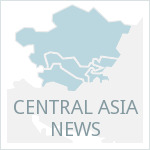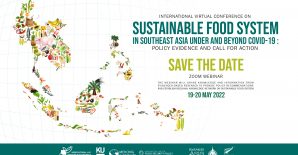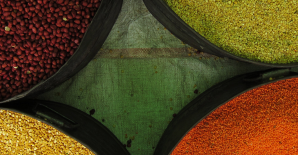News
Eighteen tons of Afghan melons rot in Tajikistan
(August 6) The Afghan Chamber of Commerce and Industries (ACCI) reported that 18 tons of melons were left to rot on the Afghanistan-Tajikistan border. The melons, produced in Afghanistan’s Kunduz province, were intended for export to Russia. ACCI and its provincial counterpart in Kunduz suggested that Tajik authorities had a hand in the delay, noting that Tajikistan has begun exporting its own melons to Russia. On the other hand, an spokesman for the Afghan government placed the blame on conflicts among Afghan traders. – TOLONews
New markets for Uzbek cherry exporters
(August 8) USAID has helped Uzbek cherry producers find new export markets in Europe and Asia, according to Uzbekistan’s Jahon state news agency. USAID projects promoting agricultural diversification and the production of higher-value agriculture have supported Uzbekistan’s continuing development as a major exporter of fruit and vegetables. Uzbekistan now ranks fifth in the world in cherry production. – Fresh Plaza
Analysis & Other Information
Uzbekistan: Karimov's economic model comes under attack
(August 3) Economists in Uzbekistan are beginning to openly voice their criticisms of economic strategies favored by the late president Islam Karimov. Among the critics, Yuliy Yusupov disparages the accepted idea of the “Uzbek model”, characterized by extensive state interference in the economy, deeming it a form of mercantilism. He also lists several basic indicators demonstrating how Uzbekistan fell behind fellow former Soviet countries over the long run. The author notes that more remarkable than Yusupov’s criticisms is the fact that he was allowed to express them publicly in the first place. – Eurasianet, Kommersant.uz
Uzbekistan opens door to Central Asian integration
(August 3) This feature in the Nikkei Asian Review discusses the improvement of Uzbekistan’s relations with its neighbors. Experts quoted in the article acknowledge palpable changes in the Uzbek government but also caution that the country has a long way to make up for foregone opportunities. – Nikkei Asian Review
Uzbekistan: evaluating the chances for a convertible currency
(August 4) Liberalization of the Uzbek national currency appears more real than ever, according to Gregory Gleason, a professor specializing in Central Asian security studies. Gleason describes some of the unprecedented statements made by authorities in recent months regarding the Uzbek som, leading many analysts to believe that the government is serious about taking the fundamental steps toward reforming the economy. – Eurasianet
Central Asia's encouraging development: why the region is embracing greater cooperation and coordination
(August 8) Ilan Berman, senior vice president of the Washington thinktank American Foreign Policy Council, comments on the recent thawing of relations among the countries in Central Asia and the Caucasus. In his editorial, he attributes the change to the internal institutional and economic development in the individual countries, a common fear of Russian encroachment, and the changing of leadership in Uzbekistan. Berman also appeals to American officials to re-examine its approach toward Central Asia and the Caucasus. – Foreign Affairs
Draft decision to abolish exit permits in Uzbekistan
(August 8) A draft decision to abolish exit permits for Uzbek citizens is in the government’s inter-agency review process, according to foreign minister Abdulaziz Kamilov. Uzbek citizens must currently obtain government permission to travel abroad. – Trend.az
Publications & Reports
Migration from Central Asian countries to Russia and Kazakhstan in the context of integration processes in the Eurasian Economic Union format
Ryazantsev, I. Bogdanov, V. Dobrokhleb, A. Lukyanets (2017). Central Asia and the Caucasus, 2017, 18(1), pp. 39-49.
National gender profile of agricultural and rural livelihoods - Kyrgyz Republic
E. Duban, D. Abdurazakova, G. Kvinikadze, FAO Ankara (2016). FAO Country Gender Assessment Series.
Events & Calls for Papers
ANICANET Summer School 2017
Training course. September 25-29, 2017 in Halle, Germany. Organized by Leibniz Institute of Agricultural Development in Transition Economies (IAMO). Summer school on quantitative analysis featuring discussion about animal husbandry in Central Asia. Check link for detailed descriptions about program and eligibility. Deadline to register for the course is August 13, 2017.
Annual Eurasian Food Security Conference
Annual conference. October 3-5, 2017 in Dushanbe, Tajikistan. Organized by the Eurasian Center for Food Security at Lomonosov Moscow State University (ECFS), World Bank Group, International Food Policy Research Institute (IFPRI), and International Center for Agricultural Research in the Dry Areas (ICARDA). Deadline to register for the conference is September 17, 2017.
Life in Kyrgyzstan
Annual conference. October 12-13, 2017 in Bishkek, Kyrgyzstan. Organized by Institute of Public Policy and Administration of the University of Central Asia (UCA), Stockholm International Peace Research Institute (SIPRI), Leibniz Institute of Vegetable and Ornamental Crops (IGZ), International Food Policy Research Institute (IFPRI), International Security and Development Center (ISDC), and the Food and Agriculture Organization of the United Nations (FAO). Deadline to submit papers is June 15, 2017. Deadline to register is September 15, 2017.
Archived issues of the news digest can be found on the Central Asia page under the ReSAKSS Asia website: http://resakss-asia.org/regions/central-asia. A link to the newsletter can be found under Blog Posts.
The articles included in this news digest have been generated from online sources. Any opinions stated herein are not representative of, or endorsed by, the International Food Policy Research Institute or its partners.



